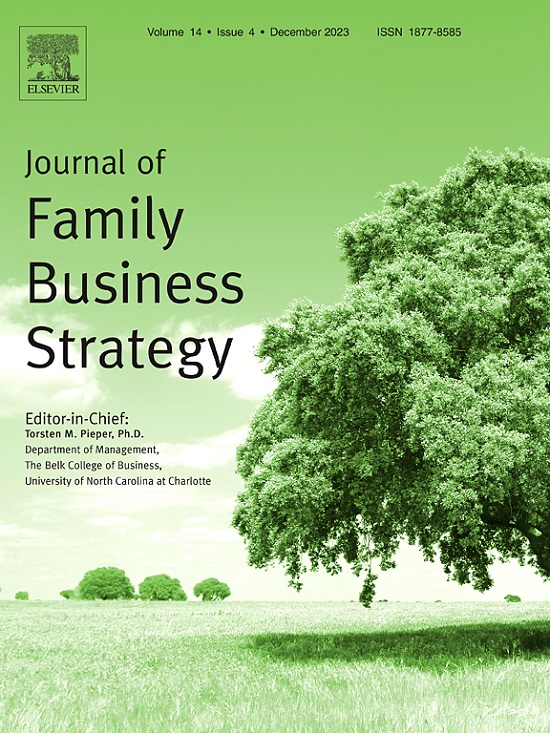Fulfillment or status: Job seekers’ reward expectations towards family and non-family employers
IF 6.1
1区 管理学
Q1 BUSINESS
引用次数: 0
Abstract
Limited anecdotal and empirical evidence suggests that family ownership status – whether a company is family-owned or publicly held – may influence job seekers’ intentions to apply. Drawing from the theory of person-organization fit and utilizing qualitative comparative analysis (QCA), we conducted an exploratory study analyzing survey data from 756 senior-level job seekers in Switzerland. Our analysis identified distinct cohorts of job seekers who consistently applied to family-owned versus non-family-owned companies. We discovered two profiles of applicants who seem to favor family employers: Fulfillment Seekers and Reward Seekers. Despite their differences, both profiles share an intrinsic need for praise. In contrast, we identified one profile of non-family firm applicants, Hero Followers, who prioritize neither praise nor pride but have a strong desire to work for an admired superior – the very thing Fulfillment Seekers and Reward Seekers deprioritize. Our findings suggest that distinct groups of job seekers are motivated by different reward combinations: Pay, Perks, Personas, Pride, which they expect to find in either family or non-family companies. Family firms could benefit from emphasizing these rewards in their recruitment processes, compensation schemes, and employer branding strategies.
满足还是地位:求职者对家庭和非家庭雇主的回报期望
有限的轶事和经验证据表明,家族所有权状况--一家公司是家族所有还是公众持股--可能会影响求职者的求职意向。我们借鉴人-组织契合理论并利用定性比较分析(QCA),对瑞士 756 名高级求职者的调查数据进行了探索性研究。通过分析,我们发现了求职者中的不同群体,他们在应聘家族企业和非家族企业时始终保持着一致。我们发现了两种似乎偏爱家族雇主的求职者特征:追求成就者和追求回报者。尽管存在差异,但这两种特征都有对赞美的内在需求。与此相反,我们发现了一种非家族企业求职者的特征--英雄追随者,他们既不把赞美放在首位,也不把自豪感放在首位,但却强烈希望为受人敬仰的上司工作,而这恰恰是 "成就感追求者 "和 "奖励追求者 "所不重视的。我们的研究结果表明,不同的求职者群体受到不同奖励组合的激励:他们希望在家族企业或非家族企业中找到这些奖励。家族企业可以在招聘流程、薪酬计划和雇主品牌战略中强调这些奖励,从而从中受益。
本文章由计算机程序翻译,如有差异,请以英文原文为准。
求助全文
约1分钟内获得全文
求助全文
来源期刊

Journal of Family Business Strategy
Multiple-
CiteScore
11.40
自引率
19.40%
发文量
53
期刊介绍:
The Journal of Family Business Strategy takes an international perspective, providing a platform for research that advances our understanding of family businesses. Welcoming submissions across various dimensions, the journal explores the intricate interplay between family dynamics and business operations, contributing new insights to this specialized field.
 求助内容:
求助内容: 应助结果提醒方式:
应助结果提醒方式:


